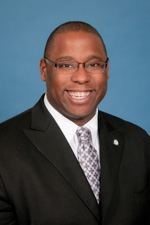Like many U.S. communities large or small, there’s a debate afoot in Newton, MA about the merits of “development” and “growth,” as has occurred every decade without fail, probably since the earliest second ship landed in an American community after a first ship already had.
Below is an excerpt from one of a number of rather frustrating recent local commentaries against urbanization and densification of Newton, Massachusetts. I wanted to link to the long one published this week, but it wasn’t online yet — and this one will do for my purposes, as the specific people involved are less relevant to my analysis than the sentiments expressed:
Newton is the home we cherish. We value its character, history and scale. Newton residents are deeply invested in their community, both economically and emotionally. Whether they have been living here for decades or recently moved here, most residents chose Newton precisely for its suburban qualities, not because they hope to see it grow ever more urban.
[…]
All discussion of “smart growth,” “transit-oriented development,” and “right-sizing” is misdirected because Newton is already “right-sized.” Newton is not yet overcrowded, but risks becoming so.
[…]
In truth, Newton is a suburb, not a city, so imbued with the character of its 13 villages that it has little in common with a typical urban environment. Newton has benefited from transit-oriented development for more than a century, as businessmen who worked in Boston found that the railroad and later the trolley could bring them to work in Boston each morning in half an hour, then home again in the evening, allowing them to live with their families in an environment of clean air, tree-shaded streets and yards, and wide lawns. Remarkably, all these years later, we still enjoy the same advantages. And most residents would probably agree that neither biking, jogging, or walking is improved by denser development.
It takes a certain amount of self-absorption and myopia to genuinely believe that these suburban locales (which, I can verify after knocking on doors for campaigns in several states, all basically look identical) are somehow unique snowflakes, with incomparable community values, visual aesthetic, and appeal to home buyers. It takes an additional dash of naivete to genuinely believe that a community one is about to move into will remain unchanged forever.
A certain attitude
The attitude captured above — generally coming from any place’s “longtime residents,” who in Newton’s case lord that status over everyone despite almost universally having moved into the area half a century or more after my own family — is fairly typical of most communities like this. It boils down to “develop this far, and no further.”
It’s a view that says it was ok that everything changed hugely right up until my arrival, after which it must freeze in place and never, ever change again, even as the population grows and societies become more complex. It’s pulling the ladder up behind one’s self and slamming the door shut. I don’t think it’s as much NIMBYism as a reactionary fear of the unknown and fear of change. It’s gatekeeping via arbitrary construction limits to prevent new residences, thus obviating the need to become an actual gated community.
Sometimes I want to tell suburbanites complaining about “urbanization” and “pro-density” policies that the existence of their houses in the once-undivided miles of fields behind the house I grew up in is affecting my hay production for the local horse-drawn carriage industry. And the ice man is having trouble keeping up with the growing population’s ice box needs.
Read more



 Recently, in some states, Goldman Sachs has been issuing “social impact bonds,” a new financial instrument that purports to help cure social ills with Wall Street’s “help.”
Recently, in some states, Goldman Sachs has been issuing “social impact bonds,” a new financial instrument that purports to help cure social ills with Wall Street’s “help.” Following another round of bigoted tweets from Boston Bruins fans,
Following another round of bigoted tweets from Boston Bruins fans, 
 I submitted this letter to the editor of the Boston Globe last week — I don’t think they published it — regarding
I submitted this letter to the editor of the Boston Globe last week — I don’t think they published it — regarding